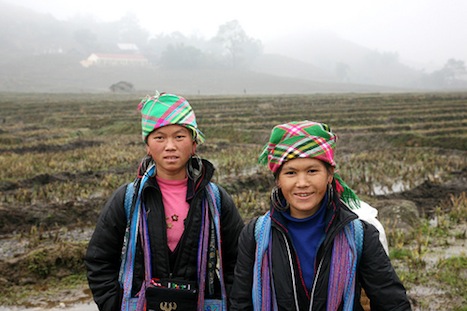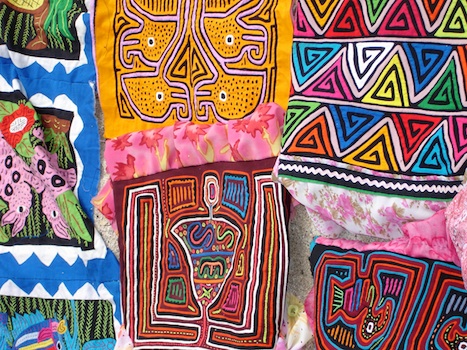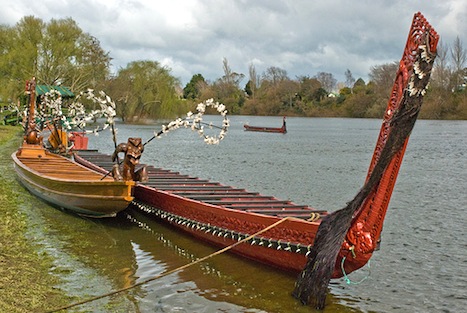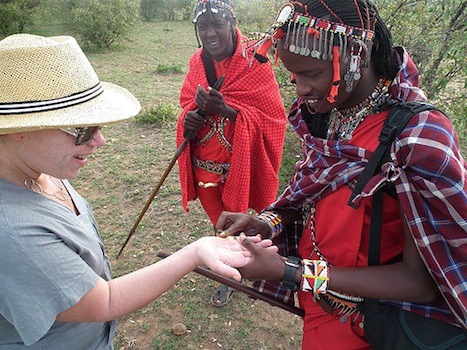
Negotiate generations-old mountain tracks and cascades of rice paddies to the villages of the H'mong people, an ethnic minority in Vietnam. Trek with Sapa O'Chau – the name means 'Hello Sapa' in the H'mong language – and you'll be boosting the education and literacy of young H'mong tour guides. Sapa O'Chau is headed by Shu Tan, an energetic H'mong woman making a real difference for her people, and if you're keen on a longer stay in Sapa, she's always looking for volunteer teachers at Sapa O'Chau's community school.
Contact Sapa O'Chau (www.sapaochau.org)

Scattered across the 400-plus islands of Panama's San Blas Archipelago is the autonomous Kuna Yala homeland, where you can spend time getting to know the Kuna people. Fly from Panama City to the tiny island of Mamirupu and stay at the rustic and locally owned Dolphin Lodge. The snorkelling and fishing are sublime, and boatmen can take visitors to nearby islands to learn about the Kuna's proud history of independence and resistance. The Kuna's iconic local handicrafts include molas, finely crafted and colourful appliqué textiles.
Contact Dolphin Lodge Panama (www.dolphinlodgepanama.com)
Journey to the ancestral lands of the indigenous Adjahdura and Ngadjuri peoples on South Australia's rugged Yorke Peninsula. Traditional storytelling includes Adjahdura 'Dreaming Stories', recounting the legend of creation and the time when megafauna roamed this ancient landscape (fossil evidence of megafauna, including giant kangaroos, reinforces the facts behind Adjahdura's shared myths and memories). Tour operator Quenten Agius is widely regarded as one of Australia's leading indigenous travel personalities.
Contact Aboriginal Cultural Tours South Australia (www.aboriginalsa.com.au)

New Zealand's indigenous Maori people are comprehensively integrated into modern society, but tribal customs and values are still important in the 21st century. Hone Mihaka, of the Ngapuhi tribe of northern New Zealand, welcomes visitors to his ancestral marae (meeting place) after a shared paddling excursion in a Maori waka (canoe). Inside a rustic meeting house trimmed with raupo (rush stems), Hone and his family conduct a spiritually powerful powhiri (welcome) on behalf of their ancestors.
Contact Taiamai Tours (www.taiamaitours.co.nz)

Il Ngwesi is Kenya's only luxury safari lodge to be wholly owned and operated by the local Maasai community; this sustainable and eco-aware project north of Mt Kenya is also one of the country's best wildlife retreats. Beyond the sublime animal-viewing opportunities, stays include education in Maasai culture, and your money helps support Il Ngwesi's rhinoceros sanctuary as well as local schools and land conservation.
Contact Il Ngwesi (www.ilngwesi.com)